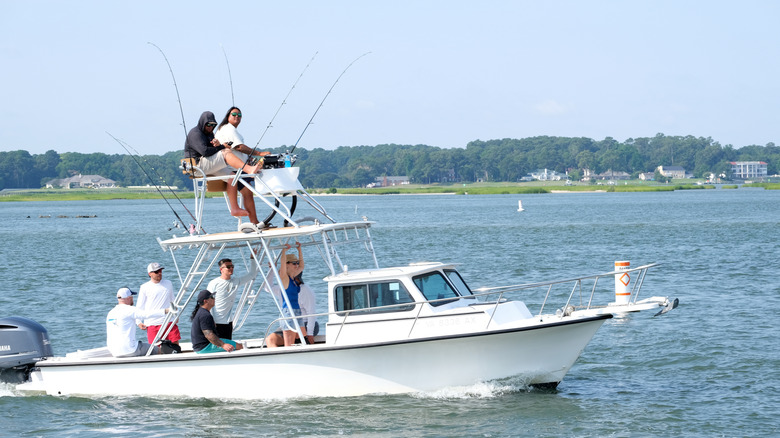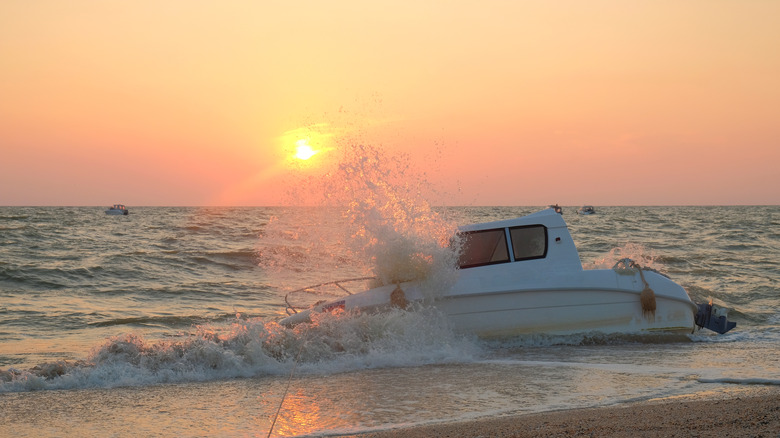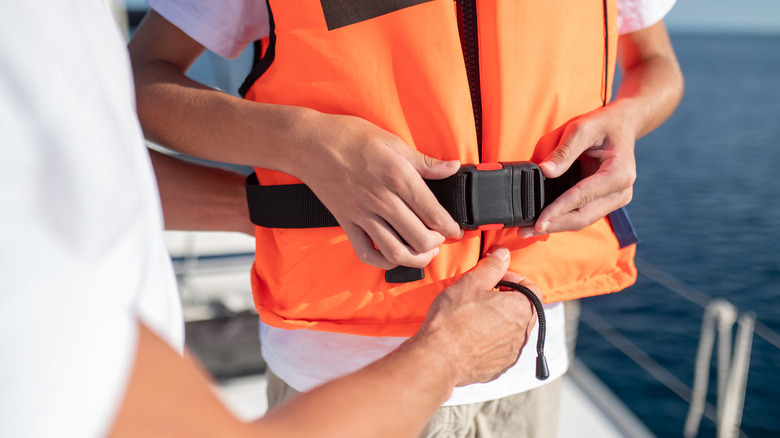A State Known For Its Stunning Bay, Summer Sun, And Seafood Is America's Most Dangerous For Boaters
Maryland's charming vacation towns on the Chesapeake Bay and its thriving seafood industry make it a favorite destination among travelers — especially those who enjoy water sports. Unfortunately, the state has earned a less-than-flattering distinction: It's ranked among the most dangerous states for boating in the United States. According to a safety analysis by boat rental platform BoatBooker, Maryland recorded 6.55 accidents per 100,000 boats, placing the state at the top of the list.
This study took into consideration five years' worth of U.S. Coast Guard data (2019 to 2023), different wind speeds, and changing weather conditions. However, in a separate study by injury law firm Kitchel Law, Maryland was ranked the eighth most dangerous state for boating. Meanwhile, a third safety study, conducted by professional yacht dealers SI Yachts, placed Maryland 28th nationally in boating safety, with an average fatality rate of 5.86 deaths per 100,000 boat registrations during the same five-year period.
Despite the risks, the state's natural beauty and hidden bay gems such as Matoaka Beach continue to attract travelers and boating enthusiasts. These studies highlight a pressing need for enhanced safety protocols and emphasize the importance of checking weather conditions prior to hitting the water to avoid any tragic mishaps.
What makes Maryland such a dangerous place for boating?
There are several factors as to why Maryland is considered such a dangerous destination for boating. One of those is alcohol use. In 2022, a boating accident in West River — where alcohol was cited to be a contributing factor — resulted in one death, and prompted the enactment of Nick's Law. The law bans individuals convicted of boating under the influence from driving a boat for two years, or five years if someone was killed. Nationwide, alcohol is involved in approximately 17% of fatal boating incidents, according to the U.S. Coast Guard, and Maryland is, unfortunately, no exception.
Lack of operator experience or training is another major contributor. Across the country, U.S. Coast Guard data shows that 75% of boating deaths are attributed to inexperienced operators, while accidents involving trained operators only account for 15% of fatalities. Excessive speed is also a concern, despite established speed limits throughout Maryland's waterways.
Weather conditions, of course, are also part of the equation. Maryland's weather can change on rapidly and vary greatly by region. According to the U.S. Environmental Protection Agency, climate change is making weather patterns even more unpredictable. For example, in 2017, a man was found dead near his capsized boat after a violent storm. Additionally, factors such as impaired visibility, lack of boat maintenance, and lack of safety equipment on board can also result in accidents.
Best ways to ensure a safe boating experience regardless of the destination
Regardless of the grim statistics mentioned, it would be a shame to miss out on the Chesapeake Bay's secret island getaways and Maryland's many other attractions — boating included. Fortunately, through education, enforcement, and awareness, the state is committed to ensuring a safe experience on the water for residents and visitors alike.
For instance, boat operators are now required to have a boating safety certificate issued by the Maryland Department of Natural Resources after completing the Maryland Basic Boating Course. There's also a Vessel Safety Check program offered by the U.S. Coast Guard, something all boaters are encouraged to take. Plus, it's crucial that both operators and recreational boaters get educated on the significance of carrying life jackets and checking weather conditions before exploring the waters.
Maryland has also criminalized boating under the influence, proving its commitment to safety. Additionally, both operators and passengers should leave a float plan — a document detailing everything about the vessel and boating trip schedule — with a loved one or local authorities. This helps ensure rescue parties are sent out after the boat in case of an emergency or any unplanned delay.


